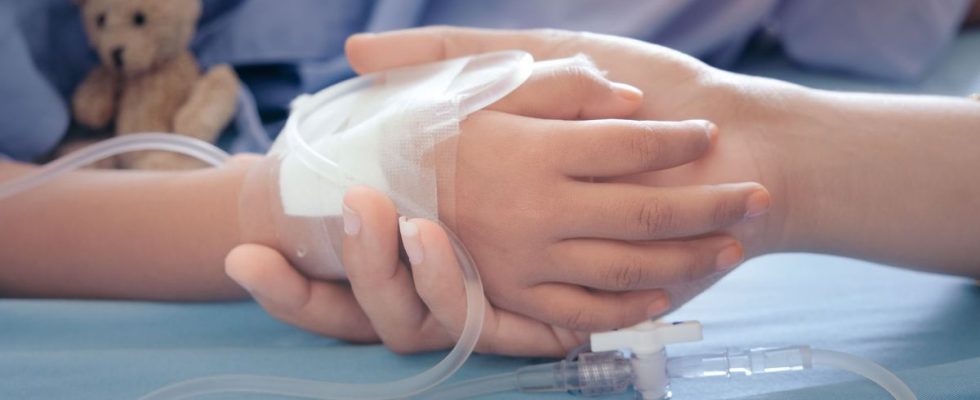Published on
Updated
Reading 1 min.
A drug indicated in the treatment of certain leukemias has been administered to an 11-year-old boy suffering from a rare genetic disease which causes him very debilitating symptoms. The child’s condition has improved significantly since taking the treatment.
Maxime, 11, carries a genetic anomaly that causes the secretion of a “harmful substance” throughout his body, his parents explained in an interview with the Parisian. This resulted in delayed cognitive development and reduced physical abilities. Maxime has also suffered from significant pain throughout his body since birth. The child benefited from several treatments which never made it possible to relieve his symptoms.
A genetic anomaly at the origin of two different diseases
In 2019, doctors from the Gustave-Roussy Oncology Institute located in Villejuif offered Maxime’s parents a treatment normally reserved for adults with certain blood cancers: enasidenib. This medication is prescribed for the treatment of acute leukemia caused by an abnormality of the IDH2 gene in adults. An anomaly which is precisely at the origin of Maxime’s disease, D-2 hydroxyglutaric aciduria, more commonly known as D-2-HGA.
If Maxime does not present the same symptoms as adults with leukemia, the starting point of his disease is the same as these patients. Hence the interest in testing enasidenib. Maxime was the first child in the world to receive treatment with enasidenib to treat D-2-HGA. The treatment reduced the severe heart pain he was suffering from and stopped his chronic constipation. The child also gained 4 kg and muscle. He still suffers from debilitating symptoms but the treatment has greatly relieved him.
A treatment that could cure the disease if caught early
The case of Maxime, which was the subject of a study published in the journal NatureScience, has enabled other children with the same syndrome to benefit from treatment with enasidenib. If the treatment improved Maxime’s condition but could not cure him, it could negate the symptoms of other sick children if taken early, said Birgit Geoerger, pediatric oncologist at the Gustave-Roussy Institute of Oncology.
